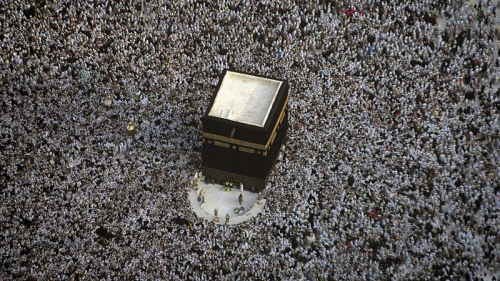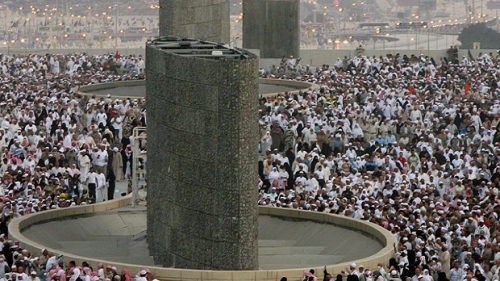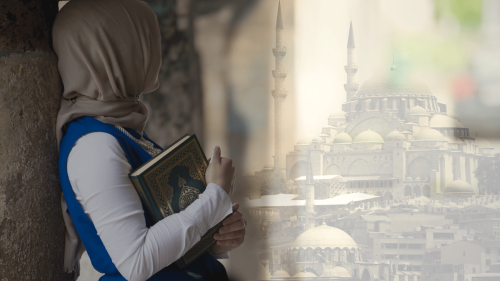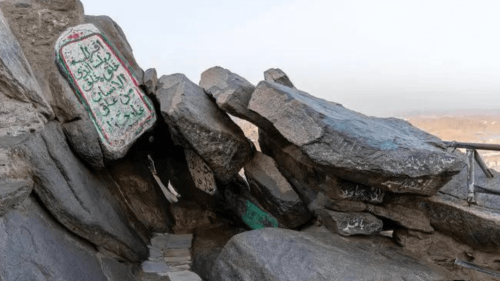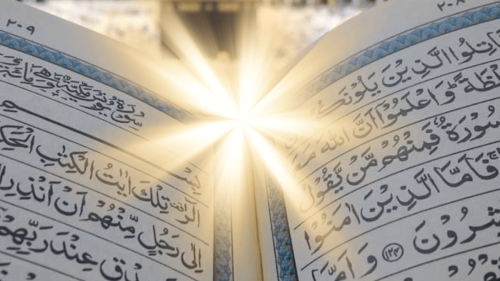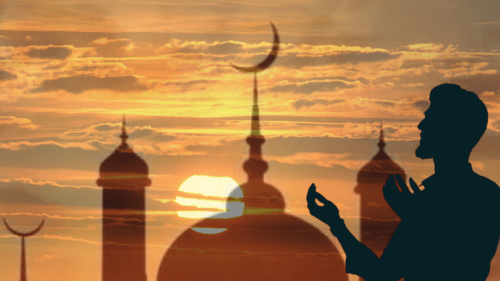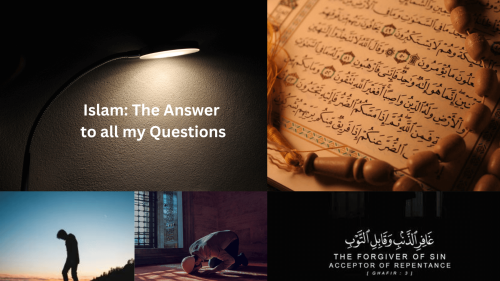My faith in America

WASHINGTON, DC - Over the past several weeks, I've been listening to and watching with wonderment and amazement the national conversation about Islam in America. I hear a question of whether moderates in my faith can exist or whether we're all somehow fundamentalists-in-waiting condemned by a faith that stems from a root word meaning "peace" in Arabic. How would my late father respond to such a question in the spirit of restraint and generosity that marked his life? An immigrant to the US by way of Tanzania and India, my father saw himself as a bridge figure, embracing this country with all his heart but forever explaining that his Islam was characterized by openness, compassion and respect for other faiths.
My father built on the teachings of the Prophet and my Imam. He started with the premise that we all share a common humanity: a concern for those less fortunate than ourselves, a sense of civic duty and a commitment to higher ideals, spiritual or secular, that can unite or divide us, depending of which parts we choose to follow. He taught me to respect, serve, and be loyal to my country and that in no way diminished my ability to practice and express my faith.
But that's what puzzles me about the current national conversation. I grew up in the United States, in the deep south. I practiced my faith easily and integrated into a community in Georgia that supported Newt Gingrich. And nobody questioned my faith or my commitment to America. Not until after 9/11. That's when seemingly educated but ill-informed scholars asserted that Islam and the West were caught in an unavoidable clash of civilizations; that there is something fundamentally inconsistent between Islam and western values.
But I embrace both. I am equally stirred by the Gettysburg Address, Martin Luther King's I have a Dream speech, and the teachings of the Prophet Mohamed. One of my favorite teachings of Hazrat Ali, the fourth Caliph, stands out in my mind. He said, "No honour is like knowledge; no belief is like modesty and patience; no attainment is like humility; no power is like forbearance, and no support is more reliable than consultation". When I read this, I see no fundamental conflict between Islam and the West. But we need more bridge figures. Those who can help us get past mutual ignorance and clashes of misunderstanding. And perhaps we don't fully appreciate our own history. There was a time in Spain between the 8th and 15th centuries when Muslims, Christians, and Jews created a civilization together, prospered together, and built a culture of mutual respect.
Not so different from America today at least as I have experienced it. Until this debate about whether we have a right to build mosques and cultural centers in New York or anywhere else. Apart from challenging the First Amendment, the terms of this conversation are marked by a clash of misunderstandings, often deliberate. According to Pew Research, American Muslims are "decidedly American in outlook, values, and attitudes." We (not "they") want the same things all American want. We embrace the American dream, strive for higher education, and want peaceful lives like our neighbors.
So how can "we" be the enemy? We are you. We are Republicans and Democrats, entrepreneurs and employees, Yankees fans and Red Sox fans. When George W Bush distinguished between Islam and the actions of extremists, we wanted badly to believe him. But today when people like Imam Feisal stand up, self-identify as moderates, and talk about pluralism, mutual respect, and building bridges of peace and understanding, he is attacked and in some ways we are all attacked. But we are not the enemy. Muslims need help in building bridges of understanding and mutual respect across faiths and communities in this country.
And to be clear, there is no one Islam any more than there is one Christianity, Judaism, or humanism. I do not speak for all Muslims or even all Muslims in America. Just as there are huge differences culturally and politically between a Southern Baptist, an Irish Catholic, and a Lebanese Maronite, so too are there differences between Islam practiced in different places. Culture, history, and especially politics play an enormous role in how faith is expressed. But it's just too easy and wrong to conflate deep seated political issues with matters of faith. Just as it's wrong to conflate the Irish Republic Army with the Catholic Church or the Ku Klux Klan with Southern Christianity, it's wrong to conflate Islam with political violence. Personally, I reject those who play the faith card and hijack faith to incite violence or spread hate, whether they appear in Waco, Texas or anywhere else. I do not accept religion as a justification for killing innocent people. In the Quran itself, there is a teaching which states "to take ones life is as if you take the lives of all humanity and to save one life is as if to save all humanity". I think there is much we share across faith traditions. Let's not draw fault lines in the wrong places.
And so I continue to be hopeful. When I watch Jon Stewart pushing us to wake up and look in the mirror, hear Mayor Bloomberg's courageous speech even when unpopular and listen to Keith Olbermann or Fareed Zakaria say what I hope many believe, I remember why I choose to live here. I hope more Americans will join hands in battling bigotry, xenophobia, and misunderstanding, wherever they find it. Let's see each other for who and what we are without attention to labels be they racial, religious, or political. I strongly believe that higher ideals will prevail in this conversation. That's why I live here and that's my faith in America.
Source: AltMuslim - Aleem Walji currently works in the field of innovation at an international organization in Washington, DC. Previously, he was Head of Global Initiatives at google.org and Chief Executive Officer of the Aga Khan
Topics: Iman (Faith And Belief) Channel: Opinion
Views: 4381
Related Suggestions
To answer in brief, NO the innovation HERE, does not quite apply in the way you felt it applies in particular when it comes to practice of rituals in Islam. The acts of worship and/or the rituals in Islam are a totally different entity when compared with chores such as innovating a new style of wheel to make things better in human life, or to innovate a pre-existing device to make it work differently or efficiently than it originally did.
In short I would say that its nice that you understand "innovation" when it relates to Islam however your ability to have an enhanced view of such "innovations" would improve if you would increase your knowledge of items which must be saved an attempt of innovation when it comes to "practicing deen-e-Islam & the relevant rituals.
With best wishes & regards.
Now wait a minute. I thought Innovation was prohibited in Islam, and Aleem is talking about his faith. Should we believe him? Is he not practising Unislamic concepts. Should we not call him a hypocrite too?






